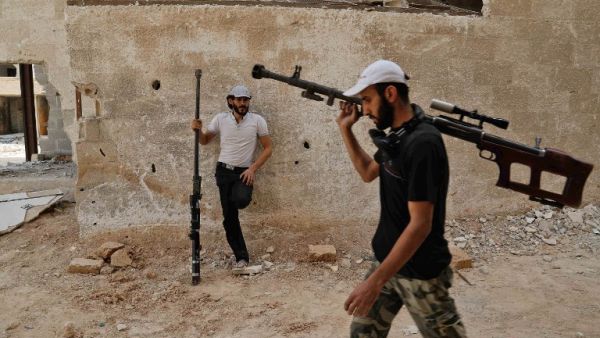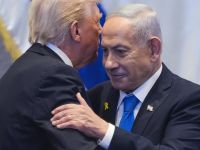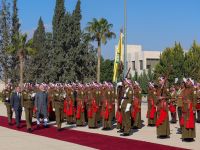A new deal designating a de-escalation zone in the volatile Syrian province of Eastern Ghouta has been signed with Syrian rebels, the Russian Ministry of Defence said Saturday.
The province, located on the outskirts of the capital Damascus, has seen bloody battles between Syrian government forces and rebels, and was the scene of a chemical weapon onslaught that killed hundreds in August 2013.
The de-escalation agreement was signed with Egyptian mediation after representatives of Syrian opposition groups and the Russian military held talks in Cairo.
The Syrian armed forces also announced halting hostile activities "in several areas in Eastern Ghouta," starting Saturday.
In a statement published by Syria's state-run press agency, the Syrian army said that "an agreement of cessation of hostilities takes effect as of noon [900 GMT] on Saturday."
It also warned that any breaches to the agreement "will be properly responded to."
The Russian military explained that "the documents fix borders of the de-escalation zone, locations and authorities of the forces observing the de-escalation, as well as routes for delivery of humanitarian aid and for free movement of the civilians," as cited by Russian press agency TASS.
It added that the first humanitarian aid convoy is due in the coming days, as well as convoys to evacuate the injured.
The London-based Syrian Observatory for Human Rights deemed the situation in Ghouta to be "calm" since the announcement of the agreement.
It noted that the agreement provides for a complete ceasefire in the zone, allowing food and humanitarian aid to be brought in and the ill and wounded to be evacuated for treatment elsewhere.
However, the watchdog accused the Syrian government of breaching the deal, twice since it took effect.
According to the Observatory's report, government tanks shelled a village inside Ghouta, leaving material damage but no casualties.
The agreement is an implementation of an accord signed during the Syrian talks in Astana, early May, which set out de-escalation zones in Syria.
The accord specified four initial areas: Idlib in the north, Homs in the east, Eastern Ghouta and southern Syria.
Regions controlled by Hayat Tahrir al-Sham, an al-Qaeda-linked alliance, are exempt from the deal.
Following a meeting between US President Donald Trump and his Russian counterpart Vladimir Putin on the sidelines of the Group of 20's meeting in Hamburg early July, a ceasefire agreement was declared in south-western Syria. It affected the cities of Sweida, Daraa and Quneitra.








